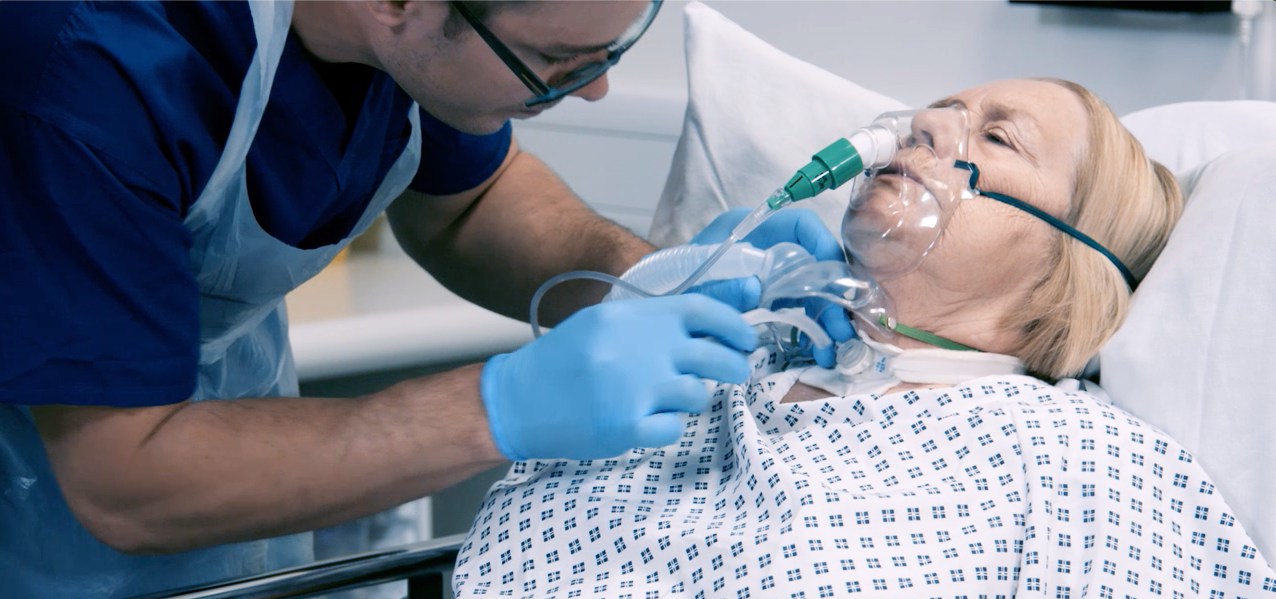Improving Tracheostomy Care

How patient safety improvement programmes work
The United Kingdom’s National Health Service, or NHS, is a public healthcare system provided by the state and provides free healthcare to UK residents. The NHS is split into the 4 devolved nations: England, Scotland, Wales and Northern Ireland, each with their own responsibilities to their populations. The 2020 Safer Tracheostomy Care program was delivered through NHS England (renamed recently as NHS England and NHS Improvement), with NHS Wales running a similar national program. Patient safety improvement programmes (SIPs) are a key part of the NHS Patient Safety Strategy, launched in July 2019, to deliver safety and quality improvements across the NHS in England. SIPs are managed and led by the NHS national patient safety team.
SIPs aim to create continuous and sustainable improvement in settings such as hospitals, maternity units, emergency departments, mental health trusts, GP practices and care homes.
They include:
- the National Patient Safety Improvement Programme
- the Maternity and Neonatal Safety Improvement Programme
- the Medicines Safety Improvement Programme
SIPs are delivered by local healthcare providers working directly with our national team and through 15 regionally-based Patient Safety Collaboratives (PSCs – see PSC section below). The SIPs support continuous and sustainable improvement through:
- Culture: They promote positive safety culture, encouraging staff to gain insight and share learning from good and poor practice.
- Evidence-based improvement: They support evidence-based, quality improvement (QI) methodology, ensuring change is consistently measured and evaluated.
- Quality improvement (QI) capability: They grow QI capability in trusts and local healthcare systems so they can continue to improve.
- System-level change: They enable regional and local health systems to identify improvement priorities and share learning.
The Patient Safety Measurement Unit supports the safety improvement programmes, including the work of the 15 regionally-based Patient Safety Collaboratives, by enabling change to be consistently measured to help identify what works.
National Patient Safety Improvement Programme
The National Patient Safety Improvement Programme (NatPatSIP) is led by the national patient safety team. The programme is delivered by 15 regionally-based Patient Safety Collaboratives (PSCs). The PSCs are each commissioned through one of 15 Academic Health Science Networks (AHSNs).
NatPatSIP supports several areas of work and you can read about current projects at the NHSE website (link). This includes the adoption and spread of effective, evidence-based practice, helping to accelerate the adoption and spread of evidence-based practice across the NHS in England. The programme also works with national, regional and local partners to develop a “pipeline” of future improvements. NatPatSIP is also responsible for commissioning and assuring the work of the Patient Safety Collaboratives.
Patient Safety Collaboratives
Patient safety improvement programmes were launched in July 2019 as part of the NHS Patient Safety Strategy. They build on the work of the 15 regionally-based Patient Safety Collaboratives (PSCs) and the Patient Safety Collaborative programme, established in 2014. The PSCs continue to deliver and support all the patient safety improvement programmes.
PSCs are made up of NHS providers and commissioners in its geographical region. They include hospitals, community, primary care, mental health and ambulance services and clinical commissioning groups.
PSCs are each managed by one of 15 regionally-based Academic Health Science Networks (AHSNs). AHSNs are made up of NHS staff, patients, carers, academics, quality improvement and safety experts.
Our national patient safety team commissions AHSNs to manage the PSCs’ work. The commissioning and assurance process falls within the National Patient Safety Improvement Programme.
Safer Tracheostomy Care
Based on the results of the 2016-19 Improving Tracheostomy Care program in 20 NHS sites, it was clear that a comprehensive QI program could be successfully rolled out into diverse NHS hospitals. The results suggested significant benefits in the safety and quality of care, with associated economic savings mostly linked to reductions in ICU length of stay. Whilst the results were from motivated sites that were ‘early adopters’ of tracheostomy improvements, it is likely that other NHS sites have problems with tracheostomy care that would benefit from these improvement measures and realise similar results. This was the basis for the planned roll out of a national implementation program.
However, the COVID-19 pandemic rather changed these (and many other!) plans. The Patient Safety team recognised that there was going to be a big surge in patients requiring tracheostomy as a result of critical illness associated with coronavirus infection. Furthermore, there was a realisation that makeshift additional ICUs would be staffed by healthcare workers drafted in from non-ICU locations. This scenario would significantly stretch all ICU staff and mean that tracheostomy care would be provided by bedside staff not as familiar or comfortable with care as normal, compounded by uncertainties in the optimal management of patients with this emerging new disease. The response was to re-frame the comprehensive ITC program into a National Patient Safety Improvement Program that focussed on key elements of delivering safe care in this difficult working environment.
The NatPatSIP focussed on providing Bedhead signs, essential bedside equipment and a toolkit containing a daily checklist of essential actions to undertake to keep patients safe. Due to the time pressures establishing the work stream, patient level results were not collected during the program which ran from April 2020 to April 2021. Detailed evaluations and case reports describing the impact of the work will be published during 2021. Some of the headline results are presented below:
- The safer tracheostomy care NatPatSIP led to 91% (172) hospital sites in England adopting all of the evidence based interventions by Q4 2020-21 across Englandm, in line with the national ambition
- There were several PSC regions who reported 100% adoption of all of the evidence based interventions, including Health Innovation Manchester, Eastern, Imperial-London, North West Coast, Oxford, West Midlands, West of England.
- You can read more about the NatPatSIP in the papers and resources published in the tabs and links here.